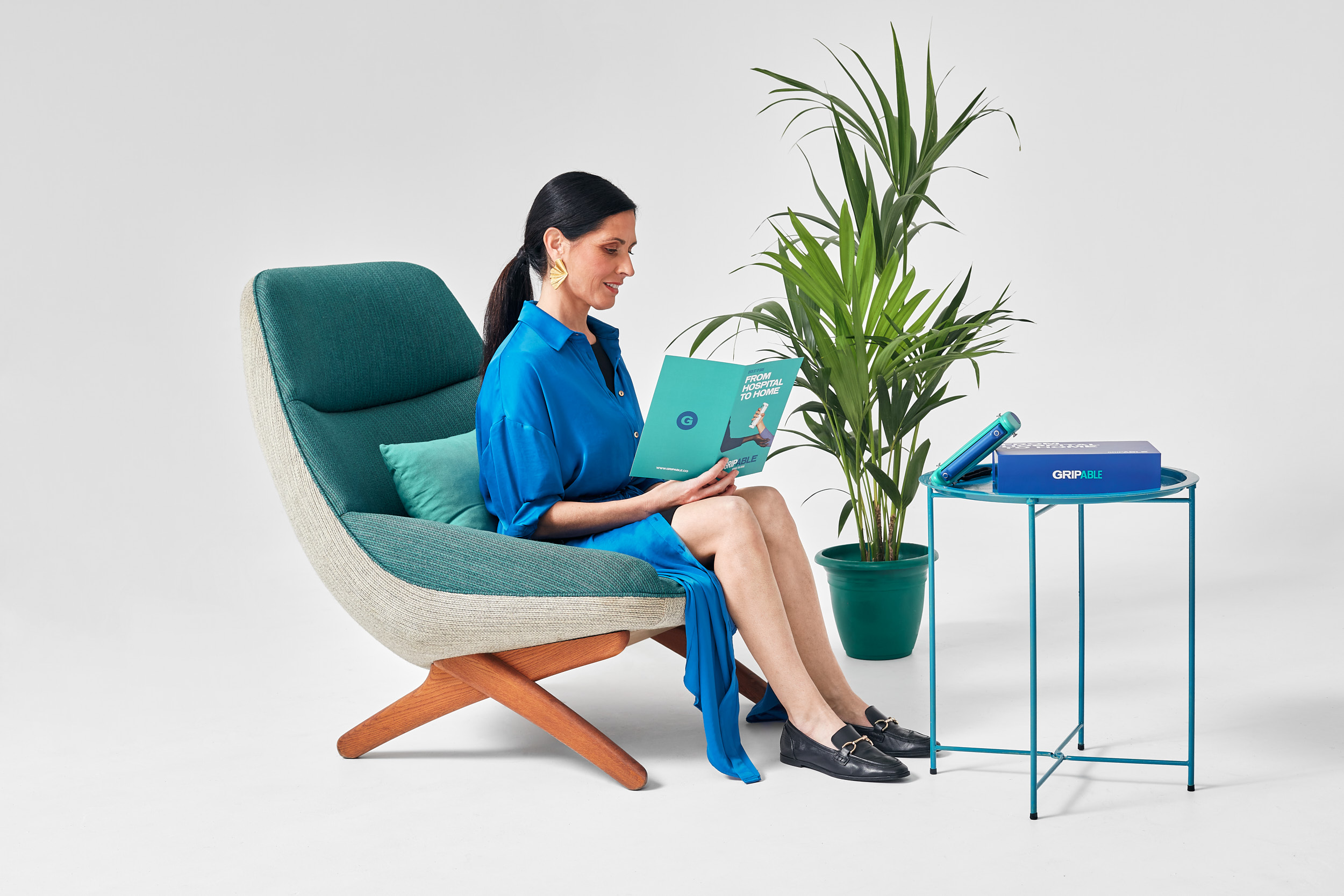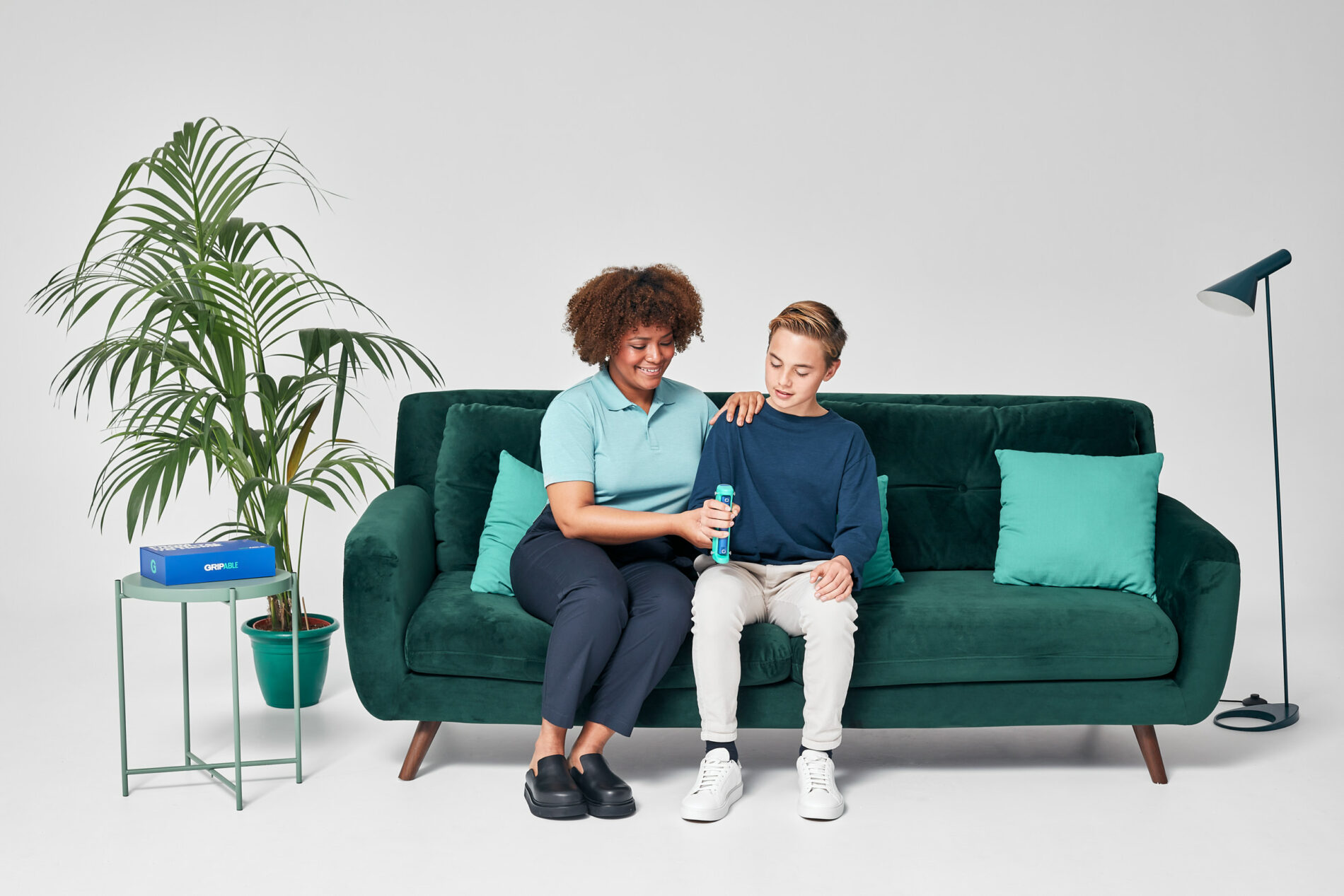Ipsen Pharmaceuticals and GripAble announce upper limb spasticity pilot study
Digital rehab provider GripAble and biopharmaceutical company Ipsen Pharmaceuticals have announced a first of its kind, joint pilot study with the potential to revolutionise the way patients undergo assessment and rehabilitation for upper limb spasticity.
Over 1 million people in the UK are affected by spasticity and an estimated 25 percent of UK stroke survivors experience spasticity following their stroke. Management of spasticity can be challenging due to the diverse presentation of the condition, distinct drug responses and
varied effectiveness of rehabilitation programmes.
Aims of the study
The aim of the joint study with Ipsen Pharmaceuticals is to evaluate the use of the GripAble platform to monitor the effectiveness of Botulinum toxin A (BoNT-A) in an injection cycle in adults with upper limb spasticity and its value as a home rehabilitation system in patients treated in routine clinical practice. The study will also collect data on patients’, physicians’, and therapists’ satisfaction with remote monitoring of patient rehabilitation using the GripAble handgrip device.
BoNT-A is a neurotoxin that acts selectively on certain peripheral nerve endings to inhibit the release of the neurotransmitter, acetylcholine. This produces a weakening of voluntary and involuntary muscle contraction, an effect that can be used to therapeutic advantage in the treatment of focal dystonia, muscle spasms, and muscle spasticity.
However, between injections, effectiveness of BoNT-A can begin to wear off in some patients, resulting in a decrease in their quality of life during this time. By measuring certain parameters, including grip strength, speed, and range of movement, over a full injection cycle, GripAble provides an opportunity to facilitate closer monitoring of BoNT-A effectiveness.
As one of the first close working relationships of its kind between the pharmaceutical industry and a digital rehab provider, the partnership hopes to ultimately shape clinical practice to improve outcomes for patients and support clinicians.
Use of the GripAble platform is expected to enhance patients’ home rehabilitation experience as well as allow the collection of real-world data that demonstrates how the device is used as part of a rehabilitation program and shows any improvement in patient upper limb functioning. Long term, Ipsen and GripAble have the potential to drive a unique partnership to support patients and healthcare professionals through the combined use of a pharmaceutical product alongside digital rehabilitation and assessment services.
Dr Paul Rinne, GripAble CEO and Co-founder, said:
“We are delighted to be collaborating with Ipsen to further evaluate GripAble’s digital rehabilitation services in this specific patient population and show the value of obtaining real-world data to inform personalised treatment plans for people suffering from spasticity. Existing digital rehabilitation tools are most often expensive, inaccessible technology or robotic machines – in contrast, GripAble offers an affordable, scalable solution that can be accessed at home.
Should this study prove successful, this could mark the beginning of an exciting journey that integrates GripAble into the upper limb spasticity treatment pathway. We have big ambitions for the future, and we’re excited to take this first step.”
Dr Mario Ippolito, Medical Director of Neurosciences and Rare Diseases at Ipsen, said:
“We are excited to be leading the way in cross-industry collaboration to bring the best possible level of care to patients. If successful, this study could pave the way for a more personalised approach to upper limb spasticity management. Each patient is different, as is their response to drug treatment and rehabilitation.
At Ipsen, we are constantly seeking new ways to provide better healthcare for patients and society, and innovative collaborations like this are part of our ongoing efforts to not only improve patient outcomes but support healthcare professionals in delivering excellent care.”
Dr Abayomi Salawu, Consultant in Rehabilitation Medicine (Hull University Teaching Hospital NHS Trust) and study lead, said:
“The more repetition and strength training a patient completes, the greater the likelihood of restoring movement and, ultimately, their independence. Many patients struggle to remain motivated to continue regular exercises following their initial therapist-led session alone. GripAble is a unique and agile solution that helps enhance patients’ at home rehabilitation experience. Not only this, but the device has revolutionised how we are able to track patient’s progress by providing real-time data on how the device is being used and any improvement in upper limb function.”
Find out more about GripAble
GripAble is an award-winning technology company developing an end-to-end digital platform for assessment and gamified rehabilitation for people with physical and cognitive disabilities. The company has been developing its solution over the last eight years in consultation with thousands of occupational and physical therapists and patients across multiple clinical conditions and leading academic institutions, including Imperial College London. GripAble launched its mobile app along with its first hand-held sensor in 2020, focusing on supporting those undergoing upper limb rehabilitation. GripAble Pro (for clinicians and therapists) is now available in the US.

